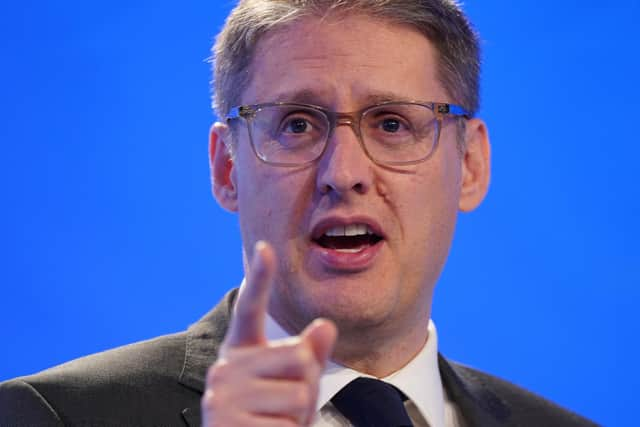CBI calls for business tax-relief to be extended in Budget
Tony Danker, Director General of the CBI today called on the Government to replace the “super-deduction”, a post-pandemic policy which cut businesses’ taxes by 25p for every pound the company invests.
The relief, aimed at kickstarting British industry after the slump of the pandemic is set to expire at the end of next month and without an announced replacement.
Advertisement
Hide AdAdvertisement
Hide AdThe CBI argues that “investment incentives are being pulled away just at the time we need them most” and pointed to April’s rise in corporation tax and the end of the super-deduction which will see business investment fall this year.


In addition, the CBI suggested that increased childcare support, health support and focus on re-skilling will help solve the current labour crisis in the country, with 75 per cent of firms saying that they have been hit by labour shortages in the past 12 months.
The CBI argues that implementing “full expensing for capital investment” which means businesses can deduct the cost of investment from their corporation tax bills, could boost UK business investment by up to £40 billion a year by 2026.
Treasury sources last night suggested that the CBI would not get its way in next month’s budget, which would see the Government extend the super-deduction if it followed the calls from Mr Danker.
Advertisement
Hide AdAdvertisement
Hide AdThe policy has cost the Treasury roughly £25 billion over two years, and would see a significant amount to keep it going.
It is expected that the Chancellor will not extend the tax-break following the perils of unfunded tax cuts seen by his predecessor Kwasi Kwarteng.
In May, when the country’s economic outlook was much healthier, the Government said that the move would be the “costliest” measure of all those it was considering to replace the super-deduction.
“No other country in the G7 has implemented this on a permanent basis,” it added.
Advertisement
Hide AdAdvertisement
Hide AdHowever the Government has previously committed to exploring what effect the end of the super-deduction will have on investment, and what replacements could be introduced.
Launching the CBI’s Budget calls after the Government mini reshuffle and Whitehall changes, the Director-General, Tony Danker, said: “The Chancellor has restored market stability and reassured business of Government’s commitment to areas like innovation, R&D and infrastructure.
“With a new Whitehall machinery in place, this Budget is the opportunity to get the UK out of any recession sooner rather than later and transform the UK into a high-growth, innovation-first economy.
“We know the economy can - and must - break out of its low growth trap, but we will need action on business investment to achieve it. Firms are seeing the end to the Super-deduction with nothing to replace it but a big rise in Corporation Tax. This will have a huge impact on investment and leave the UK falling behind its global competitors.
Advertisement
Hide AdAdvertisement
Hide Ad“We need to create stronger tailwinds to overcome the headwinds and that needs to happen this year, not next.”
The Treasury was approached for comment.
It comes after reports that Michael Gove’s Levelling Up Department had been banned from making spending decisions on “new capital projects”, meaning that future spending decisions must be greenlit by the Treasury, according to the Financial Times.
It was speculated that Mr Gove’s decision to announce a £30 million fund to improve social housing had prompted the move.
A Government spokesperson said: “The Government’s central mission is to level up every part of the United Kingdom by spreading opportunity, empowering local leaders and improving public services. DLUHC will continue to deliver its existing programme of capital projects as planned.”